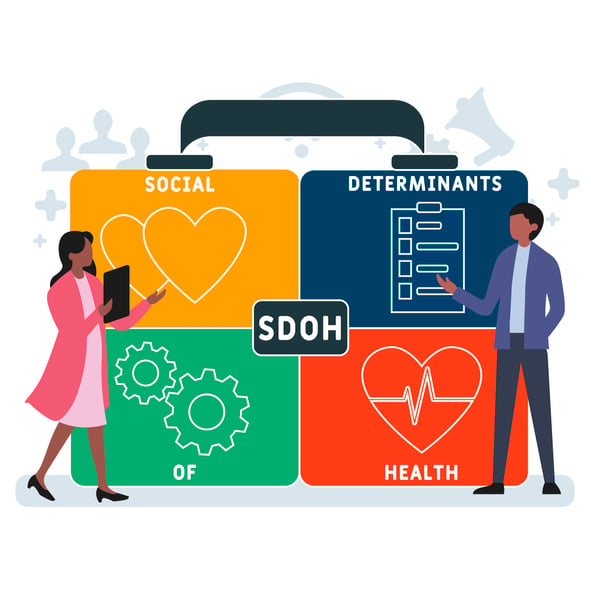UnitedHealthcare hopes $11.1M grant will help battle social determinants of health
01 Aug 2023

Preview
Source: FierceHealthcare
UnitedHealthcare’s $11.1 million grant seeks to improve the healthcare options of individuals living in underserved communities by addressing the social determinants of health. Specifically, it’ll target food insecurity, social isolation, behavioral health issues and health literacy efforts.
The Upstate Foundation in Syracuse, New York, gets $165,000. CHRIS 180 in Atlanta gets $300,000. Trellis in Minneapolis and Saint Paul gets $200,000.
These represent just a few of the 66 not-for-profit organizations spread over 12 states that have been awarded a portion of an $11.1 million grant under UnitedHealthcare’s Empowering Health program. The money seeks to improve the healthcare options of individuals living in underserved communities by addressing the social determinants of health. Specifically, it’ll target food insecurity, social isolation, behavioral health issues and health literacy efforts.
Olivia Jefferson, vice president of social responsibility at UnitedHealthcare, said in a press release that the health plan “is dedicated to addressing social and economic factors that impact people’s ability to achieve and maintain good health. As a healthcare company, we see significant and ongoing inequities that exist in various communities across the country, particularly along racial lines.”
The Upstate Foundation, overseen by Upstate Medical University, runs the She/We Matter Program, providing outreach to Black and Latino women. Linda Veit, assistant vice president of community relations with the university, certainly appreciates the boost the grant will give to the She/We Matter Program. “The impact that this funding from UnitedHealthcare will have on our local Syracuse community will be significant,” Veit said in the press release. “Because of this grant, She Matters outreach team will be able to continue the vital work of educating and empowering underserved women to make breast cancer screening a priority allowing for early detection and quicker treatment.”
CHRIS 180 supports trauma-informed mental and behavioral health and social services through a community health worker program for low-income residents of Atlanta’s Westside.
Haynes Morrison, vice president of community initiatives at CHRIS 180, said in the press release that “with the additional funding from the Empowering Health Grant, we can provide even more access to behavioral health services and trauma-informed care for historically underserved and uninsured residents on the Westside, empowering them to conquer adversity. Furthermore, this invaluable funding will propel our Community Health Workers program, enabling more families to navigate and triumph over life’s most formidable challenges.”
Trellis will use the money to reduce social isolation among those suffering from dementia as well as their caregivers. Trellis wants input from community leaders to help pinpoint those in need and develop culturally appropriate tools that will hopefully provide practical solutions for social isolation. Dawn Simonson, Trellis’ president and CEO, pointed out in the press release that “Alzheimer’s and other dementias are extremely isolating for the person with the condition and their closest family members.”
The organizations to be awarded grants operate in Colorado, Georgia, Kansas, Massachusetts, Michigan, Minnesota, Mississippi, New York, Pennsylvania, Rhode Island, Texas and Washington.
UnitedHealthcare claims that the Empowering Health program helped it screen 4.9 million members last year, 2.4 million of whom it referred to community organizations. The health plan said 84% of its members had at least one of their social needs met.
“Maintaining good health isn’t always easy, especially if you struggle with accessing nutritious food, safe, affordable housing or if you don’t have access to mental health care,” UnitedHealthcare executives said in the press release. “In fact, up to 90% of what influences a person’s health relates to these nonmedical issues, or what’s commonly referred to as social determinants of health.”
For more details,please visit the original website
The content of the article does not represent any opinions of Synapse and its affiliated companies. If there is any copyright infringement or error, please contact us, and we will deal with it within 24 hours.
Indications
Targets
-Drugs
-Chat with Hiro
Hot reports
Get started for free today!
Accelerate Strategic R&D decision making with Synapse, PatSnap’s AI-powered Connected Innovation Intelligence Platform Built for Life Sciences Professionals.
Start your data trial now!
Synapse data is also accessible to external entities via APIs or data packages. Empower better decisions with the latest in pharmaceutical intelligence.




